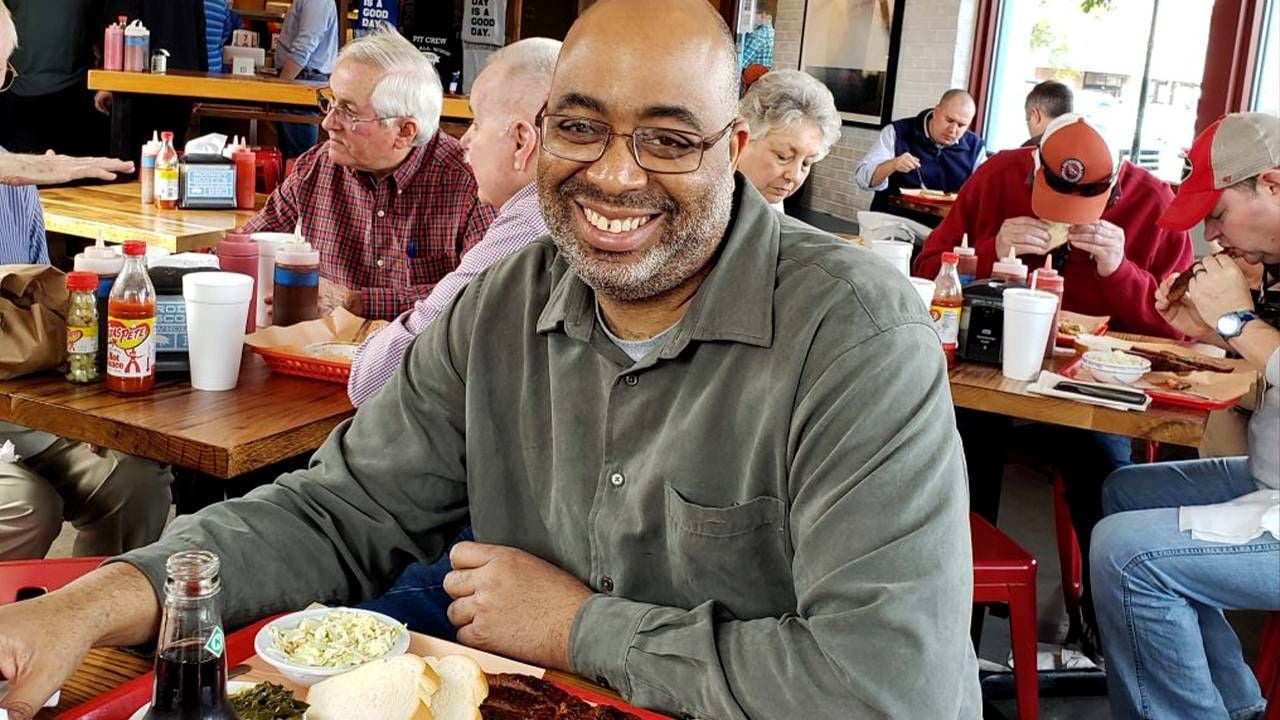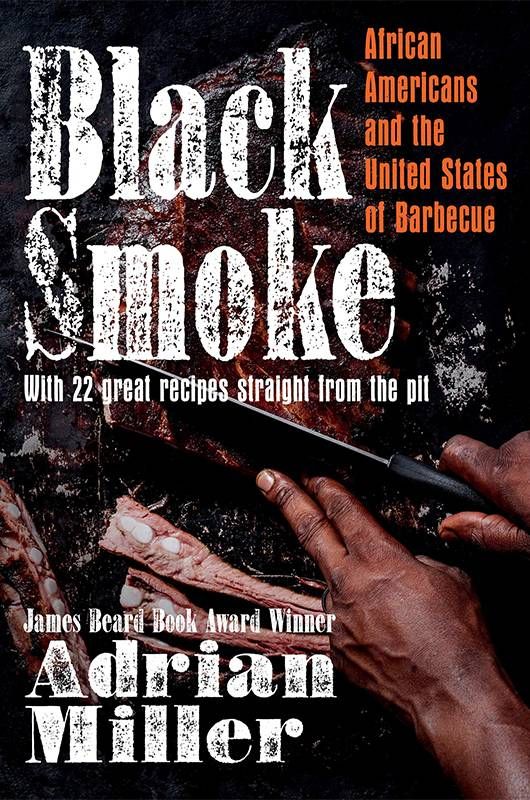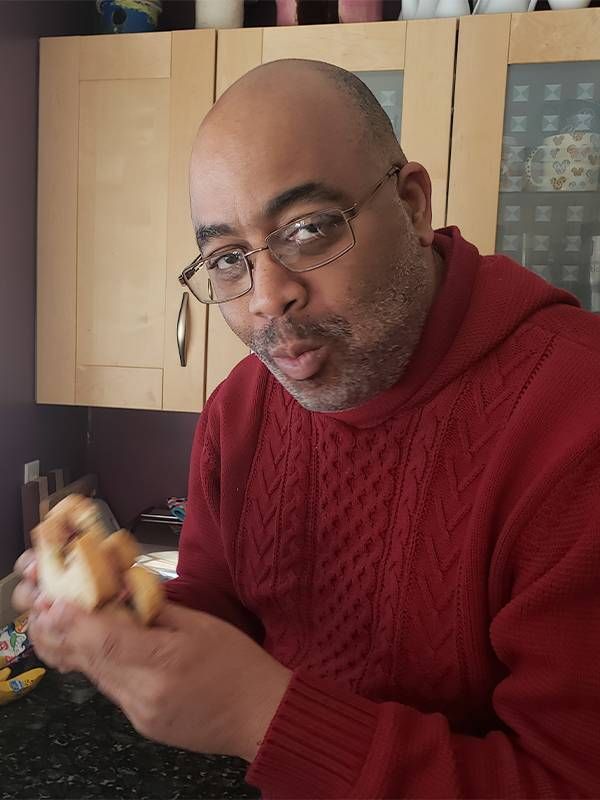How African Americans Brought Barbecue Traditions to the Table
In a new book, James Beard Award winner Adrian Miller shares the secret sauce of their culinary contributions
Editor’s note: Read an excerpt from "Black Smoke: African Americans and the United States of Barbecue" about Arkansas barbecue legend Marie Jean.
For generations of African American families, one of the essential ingredients in barbecue sauce recipes has always been… secrecy. A very high level of secrecy, in fact.
"Someone in the family is designated as the holder of the recipe," said Adrian Miller, a James Beard Award-winning culinary historian and author. "They can't tell unless they are about to die. And there are graveyards across the country filled with recipes."

What Miller no longer wants kept secret is the impact of African Americans on the history and traditions of barbecue in America.
In his new book, "Black Smoke: African Americans and the United States of Barbecue," Miller offers a comprehensive look at the men and women who have fed many, taught many and elevated this popular cooking style to its status as a fundamental component of American culinary culture.
"The more I got into barbecue, I knew that it was definitely its own thing."
It was while researching his first book, which won the 2014 James Beard Book Award for Reference and Scholarship, "Soul Food: The Surprising Story of An American Cuisine, One Plate at a Time," that Miller discovered there was much more to tell about the history of African American cooking. (He is also the author of "The President's Kitchen Cabinet: The Story of the African Americans Who Have Fed Our First Families, from the Washingtons to the Obamas.")
"I thought I'd have a chapter in the book on barbecue, since so many of the Black-owned barbecue places I was visiting are known for their soul-food side dishes," said Miller, of Denver, who refers to himself as The Soul Food Scholar. "The more I got into barbecue, I knew that it was definitely its own thing."
Even in his early research, what became "glaringly apparent," Miller said, was that African American cooks were not getting the attention they deserved for their contributions to the cooking style as the country began to gravitate to barbecue, whether in diners, restaurants or their own backyards.
Searching for the stories and histories led Miller in some surprising directions.
"The Native American foundations of barbecue was something I'd never learned about," he said, adding that generally speaking, the roots of barbecue cooking can be found in traditions cultivated by Native Americans, Europeans and West Africans.

"Of those, two of the three rely only on oral history traditions, so nothing was documented there," Miller explained, noting that he was able to uncover some writing about European settlers and their contributions to barbecue.
Barbecue Across the Country
Many African Americans in the South became adept at preparing, creating and cooking barbecue for large numbers of people, and according to Miller, in the late 1800s, they started to move across the country as "barbecue's most effective ambassadors."
"Southern barbecue started in Virginia, and from there, the African Americans were bringing their traditions to Kentucky, Tennessee and East Texas," he said.
And along the way, many were building stellar reputations for their talents. "There was a lot of barbecue freelancing going on across the country, and many cooks were becoming well known," said Miller.
For "Black Smoke," Miller profiled 16 men and women, from across the generations, who were barbecue vanguards.
One example: Columbus B. Hill, also of Colorado, who pulled off a massive culinary feat on July 4, 1890.
"On the grounds of the state capital, he prepared barbecue for twenty-five thousand people and the event was covered in the local newspaper," said Miller.
Another one of Miller's barbecue heroes, actually heroines, is Mary John — real name Marie Jean — a renowned Arkansas pit master in the 1840s. (Read an excerpt from "Black Smoke" about this formerly enslaved woman, who was known as a "superintendent" in the barbecue realm, superior to a host of male cooks of the day.)
"A lot of Black women have been in barbecue for a long time," Miller said. In his own family, where he was one of six children, Miller said his late mother, Johnetta, was "the griller in chief."
The Subject of Sauce
Back to that subject of family sauces, Miller said he's in possession of his grandmother's recipe, but that "there's no condition of silence" when it comes to sharing. "In my family, barbecue is more of a method," he explained.
While not the case in his family, Miller said people often purchase commercial sauce and doctor it with lemon. "I have a lot of fond memories of a half-cut lemon with seeds floating in a pot of barbecue sauce," he said.
"A lot of Black women have been in barbecue for a long time."
Miller has not only researched and written about barbecue, he's gotten up close and personal as a Certified Kansas City Barbecue judge, and has served as a past judge in the American Royal World Series of Barbecue.
"The TLC reality series 'BBQ Pitmaster' sparked a lot of interest in competitive barbecuing," said Miller. "When I started, there weren't that many judges, but there's kind of a glut of them right now."
Miller himself has been featured in the Netflix series "High on the Hog: How African American Cuisine Transformed America."
Conversations Around the Table
With the slow return of in-person events, Miller will be on tour this summer and fall in support of "Black Smoke" including some barbecue-themed meet and greets around the country.

"People are just longing to be in contact with each other again," he said. "We'll have some fun."
When he's not studying, tasting or writing about barbecue, Miller, who is a lawyer and served as a special assistant on President Bill Clinton's Initiative for One America from 1999-2001, has an altogether different job: He's the executive director of the Colorado Council of Churches where he is the first African American and the first layperson to hold that position.
The part-time nature of the job "makes the writing life possible," said Miller, saying that the challenges of the pandemic led to the hybrid nature of church services in Colorado (some in person, some online), a situation he expects to see continue into the fall.
Admitting that he once had aspirations to run for Senate in his home state, Miller said he would now like to have a different kind of impact when it comes to bringing people together.
"I've always thought about writing a guide to hosting a dinner series on how to have difficult conversations," he said. "The challenge for us in this country today is how to create space where people can come together and listen to each other."
If barbecue is on the menu, even better.
3 of Adrian Miller's Favorite Barbecue Restaurants
In "Black Smoke," Miller has also curated a collection of 22 traditional barbecue recipes. We asked him to tell us where he likes to sample barbecue across the country, when he's not cooking.
Here's a taste:
Cozy Corner in Memphis. "The food is great, it's owned by Desiree Robinson, co-founder with her late husband, and the first African American woman to be inducted into the Barbecue Hall of Fame."
Izzy's Brooklyn Smokehouse in New York City. "This is a Kosher barbecue restaurant, owned by an Orthodox Jewish family. Their food is pretty tasty."
Jenkins Quality Barbecue in Jacksonville, Fla. "A Black-owned restaurant that's just really awesome."


